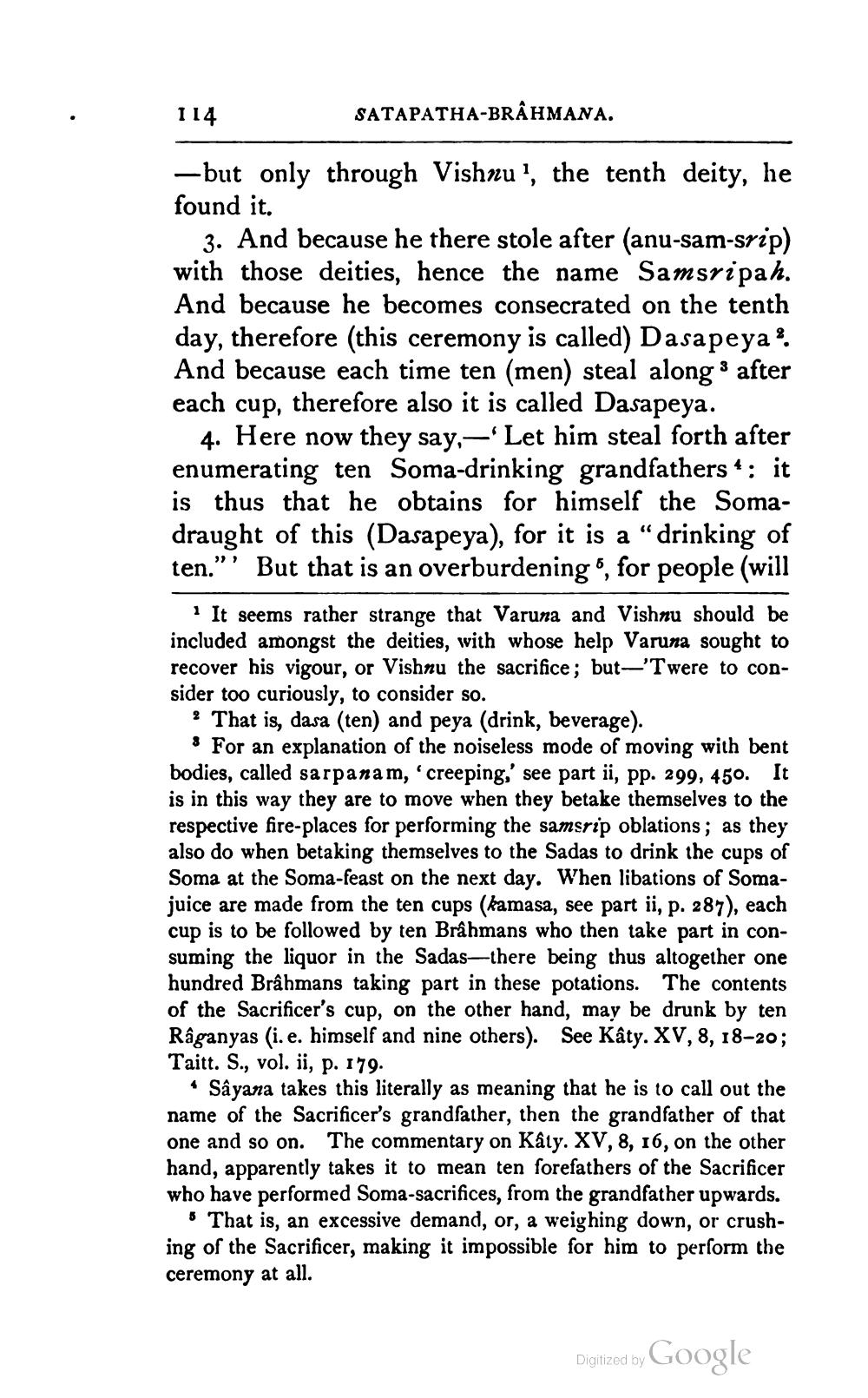________________
114
SATAPATHA-BRAHMANA.
—but only through Vishnu', the tenth deity, he found it.
3. And because he there stole after (anu-sam-srip) with those deities, hence the name Samsripah. And because he becomes consecrated on the tenth day, therefore (this ceremony is called) Dasapeya. And because each time ten (men) steal along : after each cup, therefore also it is called Dasapeya.
4. Here now they say,— Let him steal forth after enumerating ten Soma-drinking grandfathers 4: it is thus that he obtains for himself the Somadraught of this (Dasapeya), for it is a “ drinking of ten."' But that is an overburdening 5, for people (will
? It seems rather strange that Varuna and Vishnu should be included amongst the deities, with whose help Varuna sought to recover his vigour, or Vishnu the sacrifice; but—'Twere to consider too curiously, to consider so.
? That is, dasa (ten) and peya (drink, beverage).
: For an explanation of the noiseless mode of moving with bent bodies, called sarpanam, creeping,' see part ii, pp. 299, 450. It is in this way they are to move when they betake themselves to the respective fire-places for performing the samsrip oblations; as they also do when betaking themselves to the Sadas to drink the cups of Soma at the Soma-feast on the next day. When libations of Somajuice are made from the ten cups (kamasa, see part ii, p. 287), each cup is to be followed by ten Brâhmans who then take part in consuming the liquor in the Sadas- there being thus altogether one hundred Brâhmans taking part in these potations. The contents of the Sacrificer's cup, on the other hand, may be drunk by ten Râganyas (i.e. himself and nine others). See Kâty. XV, 8, 18-20; Taitt. S., vol. ii, p. 179.
• Sâyana takes this literally as meaning that he is to call out the name of the Sacrificer's grandfather, then the grandfather of that one and so on. The commentary on Kâty. XV, 8, 16, on the other hand, apparently takes it to mean ten forefathers of the Sacrificer who have performed Soma-sacrifices, from the grandfather upwards.
That is, an excessive demand, or, a weighing down, or crushing of the Sacrificer, making it impossible for him to perform the ceremony at all.
Digitized by Google




